In today’s classrooms, cultural and linguistic diversity is rapidly growing, making bilingual skills crucial for teachers to succeed. Bilingualism supports English Learners (ELs) and fosters an inclusive learning environment. At Passage Preparation™, we understand the importance of bilingual education in empowering teachers to meet the needs of their students. In celebration of National Hispanic Heritage Month, we’ll explore how bilingual skills can help teachers succeed and how you can create inclusive classrooms by pursuing ESL and bilingual certification.
Why Bilingual Skills Are Crucial for Teachers’ Success
As classrooms across the United States become more diverse, the demand for bilingual educators is rising. According to the U.S. Census Bureau, over 20% of households speak a language other than English at home. As a result, teachers with bilingual skills are in a unique position. They can bridge language gaps and foster better communication with students and their families.
Bilingualism allows teachers to break down learning barriers. In fact, bilingual skills help teachers succeed by creating a more engaging and supportive environment for students. Beyond communication, bilingual educators respect and integrate cultural diversity into their teaching. This creates a more engaging and supportive environment for learners from different backgrounds. Consequently, this enhances student motivation. It also builds a stronger connection between teachers, students, parents/guardians, and the community.
How Bilingualism Enhances Student Achievement
Research consistently shows that bilingualism has a positive impact on learning. For example, studies by the American Council on the Teaching of Foreign Languages (ACTFL) show that bilingual students often outperform their monolingual peers. These cognitive benefits include problem-solving, critical thinking, and multitasking. Additionally, bilingual students show heightened levels of empathy and cultural awareness, critical skills for today’s interconnected world.
When teachers are bilingual or trained in language acquisition, they better support students learning a second language. They also encourage the maintenance of the students’ first language. This dual-language development promotes academic success and strengthens cognitive abilities. Furthermore, it reinforces students’ cultural identities. Bilingual educators play an essential role in fostering this growth. As a result, students excel both academically and socially.
Career Advantages of Bilingual Skills for Teachers
The rising demand for bilingual teachers brings exciting career opportunities. Many school districts offer incentives such as increased pay and signing bonuses. Some districts also provide additional professional development. These benefits are meant to attract educators who can teach in multiple languages. As schools focus on closing the achievement gap for ELLs, bilingual teachers are increasingly in demand.
Beyond the classroom, bilingual educators often take on leadership roles. They advocate for language learners and foster cultural inclusivity across the school community. Their ability to communicate with diverse student populations makes them invaluable to school systems. In addition, their engagement with families from different backgrounds strengthens the school community as a whole.
Fostering Inclusivity Through Bilingual Education
The benefits of bilingual education extend far beyond language acquisition. Schools that prioritize bilingual education create more inclusive and equitable learning environments. By promoting linguistic and cultural diversity, they ensure that all students, regardless of background, thrive both academically and socially.
Bilingual educators lead this movement. They create classrooms where every student feels valued and supported. These educators help students master the English language while celebrating the richness of their first languages. This dual-language approach fosters a deeper understanding and appreciation for diversity. It also prepares students for success in a multicultural world.
Passage Preparation™ ESL/Bilingual/ESOL Courses
At Passage Preparation™, we support aspiring teachers in developing the bilingual skills needed in today’s diverse classrooms. We offer comprehensive study guides and practice tests tailored to key ESL and bilingual licensure exams. Our resources ensure that you are well-prepared for your certification journey.
For teachers preparing for their certification exams, we offer comprehensive resources for various ESL and bilingual education exams. Our in-depth study materials cover the Praxis® English to Speakers of Other Languages (5362) exam, the Texas Bilingual Education Supplemental (164) exam, and the TX ESL Supplemental (154) exam. If you’re in a state requiring the National Evaluation Series™ (NES) exams, we also provide preparation for the NES™ English to Speakers of Other Languages (507) exam.
In addition, we support teachers pursuing certification in NY ESOL, the TX Bilingual Target Language Proficiency Test (BTLPT) (190), and the MTTC (Michigan) ESOL exam (126), with content covering crucial topics such as language development, bilingual pedagogy, and assessment strategies.
No matter where you plan to teach, Passage Preparation™ has the resources to help you succeed. You can search by state to find out which exam is required for ESL or bilingual education certification in your area.
Conclusion
Bilingualism is more than just a skill—it’s a powerful tool for creating inclusive, equitable classrooms. In these environments, all students can succeed. By investing in bilingual education, you are not only enhancing your career but also helping build a brighter future for your students.
If you’re ready to make a difference, explore Passage Preparation™’s comprehensive ESL/Bilingual study guides and courses today. Together, we can help you develop the skills to become a certified bilingual educator and inspire the next generation.









